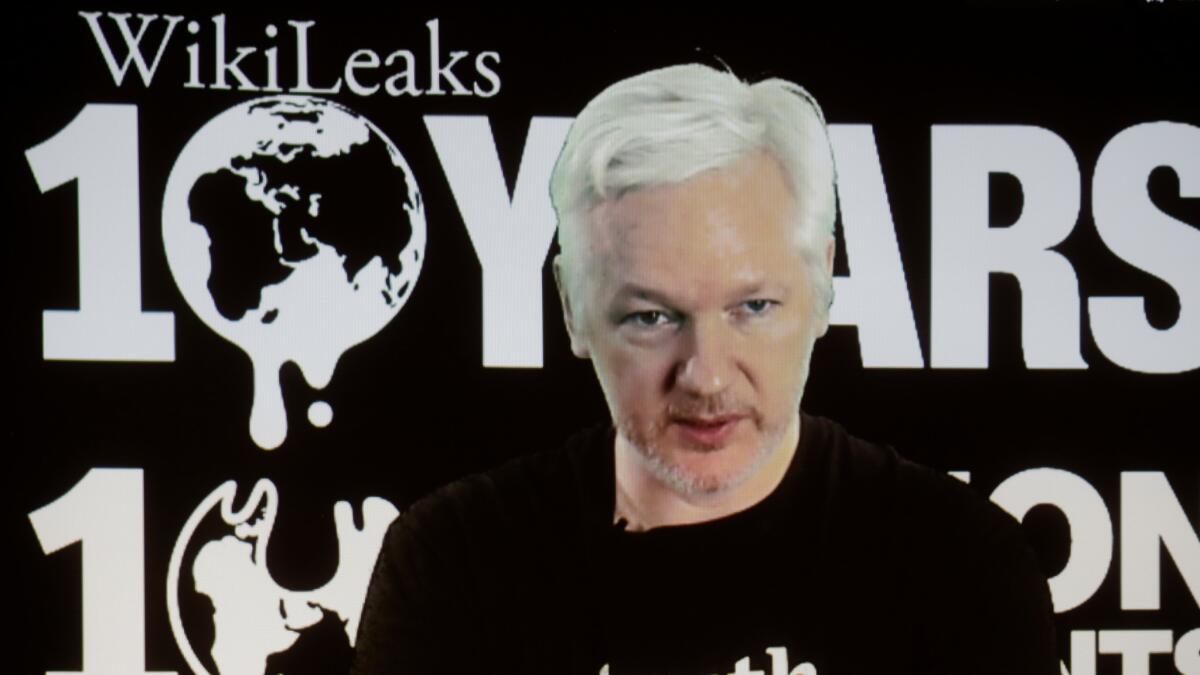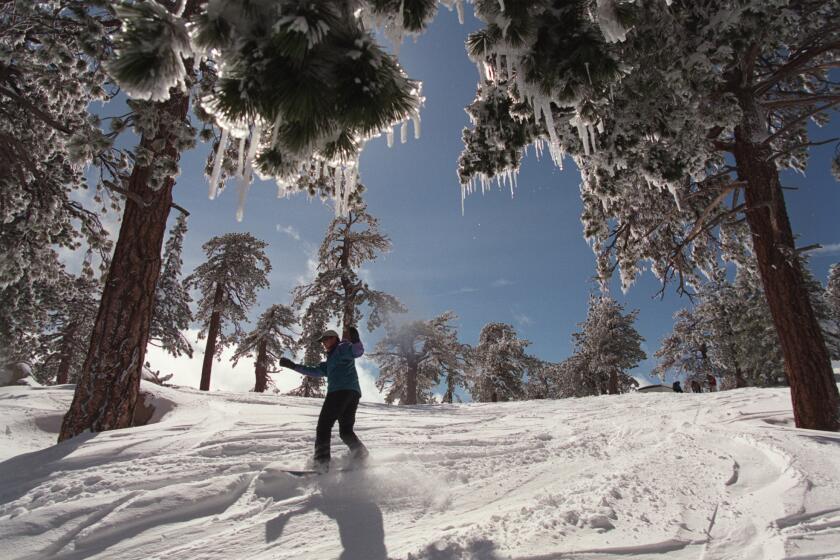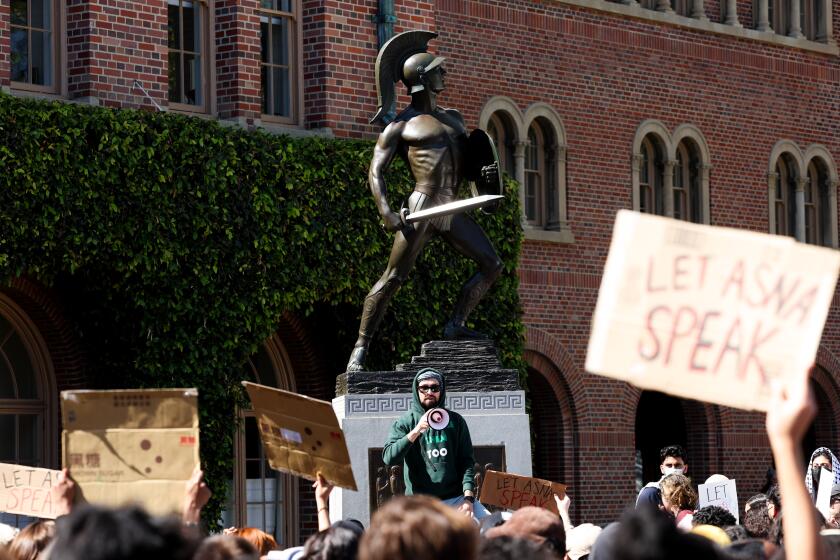Opinion: Hillary Clinton will recover from WikiLeaks’ data dumps. LGBT individuals around the world may not be so lucky

We live in the era of the data dump. Lately, however, it seems the hackers who once challenged government surveillance or the illegal wartime activities of superpowers, have taken on a new type of target.
WikiLeaks, the transparency website founded in 2006 by Julian Assange, has waded into the waters of partisan politics with its release of thousands of private emails from Democratic presidential nominee Hillary Clinton’s campaign. There’s a principled argument for this kind of radical transparency. Assange himself made it more than a decade ago on his then-blog: “The more secretive or unjust an organization is, the more leaks induce fear and paranoia in its leadership and planning coterie.”
The reality, however, is that some secrets exist for a reason. While Assange may be basking in the limelight for embarrassing Clinton these past two weeks, some of his recent actions may have caused significant collateral damage — particularly to members of the LGBT community.
In July, WikiLeaks published documents from inside the regime of Turkish president Recep Tayyip Erdogan, following a failed attempt at a coup. That leak, however, included the private information of thousands of Turkish women, including their home addresses. In publishing Saudi Arabian diplomatic cables, the site outed two male teenage rape victims in Saudi Arabia, and published the name of a man imprisoned for “sexual deviation.” One survivor was reportedly “raped by a man while abroad” and one was “so violently raped [that] his legs were broken,” the cables said, according to the Associated Press.
WikiLeaks’ methods were criticized by exiled whistleblower Edward Snowden, who exposed the NSA’s controversial metadata program in a 2013 leak. “Democratizing information has never been more vital, and WikiLeaks has helped,” Snowden has said. “But their hostility to even modest curation is a mistake.” The Washington Post later argued that WikiLeaks operates under a “reckless just-publish-everything mentality,” acting with a blatant disregard for the civilians caught in the crosshairs.
When it comes to reporting on LGBT lives, redacting sensitive information is extremely important. The practice of outing, revealing someone’s sexuality before the individual is willing or able to come out publicly, has been criticized by LGBT activists as an invasion of privacy, but this is only part of the story. Outing can cause severe psychological harm, it can lead to youth being expelled from their homes, and it can even get someone killed.
It destroys lives.
And yet WikiLeaks’ mantra of radical openness has seemingly begun to filter down to the culture at large.
During the Olympic games in Rio, Nico Hines, a writer for the Daily Beast, posed as a gay man on hookup apps like Grindr and Jack’d. Hines, who is straight and married, claimed that he was looking to “meet up” with male Olympic athletes. Although identifying information was later redacted by the site, the original draft made it relatively simple to discern which men got in contact with Hines. Several of these Olympians represented countries where being out remains illegal. The article was later taken down.
In 10 countries around the world, being LGBT is not only a crime — it is punishable by death. Nations mandating the execution of LGBT people include Yemen, Afghanistan, Nigeria, Iran and Saudi Arabia, the same country where WikiLeaks forced gay men out of the closet. In March, Okaz, a newspaper in Jidda, reported that Saudi officials have recently sought to make discussing one’s sexuality on social media a death penalty offense. This decision follows a recent uptick in sting operations targeting gay men, with 35 criminal prosecutions for sodomy in a six-month period.
In July, 19-year-old Hassan Afshar became the latest LGBT person put to death in Iran. Iranian officials claimed that the teenager, still in high school at the time of his arrest, raped another young man, even though Afshar’s parents insisted the sexual encounter was consensual. The distinction didn’t matter. The young man, who was denied access to a lawyer, was hanged July 18. Since 1979, reports estimate that 4,000 to 6,000 LGBT Iranians have been sent to the gallows because of their sexuality.
Cases like Hassan’s have become more common in recent years, as LGBT people have been subject to an international backlash from conservative groups following recent gains in equality. In Indonesia’s Aceh province, ruled by sharia law, citizens are subjected to 100 lashes if found guilty of same-sex intercourse. The country’s high court is set to rule on whether to bring the penalty against homosexuality nationwide, which could mean up to 15 years in prison for those convicted. Ahead of that decision, Indonesia has sought to block access to all gay hookup apps, including Grindr, Blued and BoyAhoy.
Even in the U.S., LGBT-identified people may choose not to disclose their sexuality to office mates or supervisors, in fear of being the victim of workplace discrimination. According to UCLA’s Williams Institute, between 15% and 43% of LGBT people have faced on-the-job harassment, with transgender employees most vulnerable. Despite the passage of marriage equality in 2015, you can still be fired in 28 U.S. states for being LGBT. These include Kansas, Mississippi, Idaho and Indiana.
Being outed can lead to job loss, but for youth, it can even mean living on the street — or worse. The Williams Institute of UCLA School of Law reports that 40% of homeless-youth service providers’ clients identify as LGBT, and a majority of them were kicked out of their homes because of their orientation or gender identity, the report says. LGBT youth who face rejection from their community are 8.4 times more likely to attempt suicide than those who experienced acceptance. Nineteen-year-old Tyler Clementi, then a student at Rutgers, brought national attention to this issue in 2010 after his roommates filmed him having a sexual encounter with another man. Clementi, who was still coming to terms with his sexuality, took his own life after the video was put online.
Sensitive subject matter requires great sensitivity.
WikiLeaks’ mission is to expose government wrongdoing and corruption through radical transparency, promoting a culture of greater accountability. By forcibly outing LGBT people, though, the site has done the opposite—helped bigots, bullies and oppressive regimes everywhere.
Hillary Clinton will likely recover just fine from these leaks and from future data dumps. Not everyone may be so lucky.
Nico Lang is the East Coast reporter for the Advocate. You can also read his work on Salon, Onion A.V. Club and the Guardian. Find him on Twitter @nico_lang.
Follow the Opinion section on Twitter @latimesopinion and Facebook
MORE FROM OPINION
Trump’s not just racist and sexist. He’s ableist
What the WikiLeaks emails tell us about Hillary Clinton
Eric Garcetti ducks another tough choice — this time on affordable housing
More to Read
A cure for the common opinion
Get thought-provoking perspectives with our weekly newsletter.
You may occasionally receive promotional content from the Los Angeles Times.






